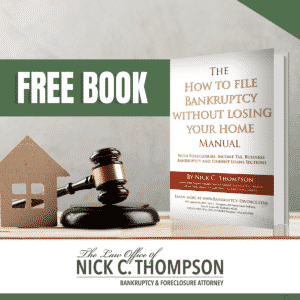There are requirements for submitting annual budgets and tax refunds in some districts such as Louisville, Kentucky. Of course, one of the requirements while in bankruptcy is for debtors to use their best efforts to repay all debts. Interestingly, this requirement is part of a bargain in bankruptcy. Additionally, in Chapter 7 or Chapter 13 the debtor must prepare and live on a budget. You will find this budget in Schedule I, J, and the Chapter 13 plan. The result of which outlines how there is either money to repay debts or how there is not. The debtor then keeps a reasonable amount of property and only disposable property and income pays out to creditors.
Annual Budgets and Tax Refunds in Bankruptcy
A tax refund is a bonus. It’s also something more than your monthly income which you must live on. But, it is also an asset! In Western Kentucky Chapter 13 cases, it is handed over to the trustee annually to repay creditors. Please be aware that failure to file the annual budget, turn over copies of the tax return, and refund causes Chapter 13 to be dismissable. However, in Eastern Kentucky and Indiana, debtors keep tax refunds and don’t turn in annual budgets.
⎆ Chapter 13 annual budgets.
In the Western District of Kentucky Chapter 13, there is a requirement for the debtor to turn in an annual budget and their tax returns. If the annual budget shows increases to your income, then the plan payment may increase. Normally there is a small increase in income and a small increase in expenses. Then, the plan payment tends to remain the same. Additionally, the plan payment might also decrease.
So, if your income only went up $10 dollars don’t expect your plan payment to increase. But, if your income doubles from $50,000 to $100,000 you may expect the plan payment to increase.
⎆ Keeping tax refunds in Chapter 7.
Your tax refund is also an asset. Indiana only has a $300 dollar exemption for intangible property so you lose any bank deposits and tax refunds over $300 dollars. In Kentucky, one half of the unused portion of the real estate exemption is usable as a wild card. Therefore, up to $12,500 in exemptions can cover your tax refund and bank deposits if you use the real estate exemptions as a wild card.
One strategy is to file a Chapter 7 bankruptcy after you receive and spend the tax refund. If you file a Chapter 7 Bankruptcy after you get your tax refund and spend it there is nothing for the trustee to take. Therefore, timing is important. Interestingly, many states like Kentucky use the Federal exemptions which are so large that it’s rare to lose a tax refund in a Kentucky Chapter 7. Additionally, Indiana and several other states have exemptions that are larger than the Federal exemptions.
⎆ Keeping tax refunds in Chapter 13
In Chapter 13 you normally lose your tax refund if the plan pays less than 100%. If the plan repays 100% then there is no reason to turn over tax refunds, personal injury settlements, or inheritances the debtor may receive during Chapter 13. In Western Kentucky, it is allowable to keep the earned income credit, but you can’t keep the child tax credit. You can also keep the amount it costs to prepare the tax forms. Additionally, if you get a refund from Federal but owe the state you can net that out. Therefore if you get $2,000 from the Feds and owe $500 to the state the trustee must be paid $1,500 minus any earned income credit and tax preparation fees.
But, be aware that if you fail to turn over the refund in the Western District of Kentucky the trustee will move to dismiss the case. Also, if you file a tax extension, you must send the trustee a copy. The trustee is at 502-581-9042 – Hit “0” to confirm receipt. But, they must get it by June 15th or they file the motion to dismiss.
However, if you spend the tax refund for a medical emergency the court may approve it. Otherwise, it must be repaid within 12 months by increasing plan payments.
⎆ Timing is essential for filing bankruptcy.
The timing of when, where, and what type of bankruptcy to file is essential when your bankruptcy involves income tax debts or refunds. Often the best approach to prevent losing the tax refund is to claim additional exemptions to ensure you don’t have a tax refund while you are repaying in Chapter 13. Again, timing and planning are everything. This is why you need good legal advice when you file bankruptcy so it is done properly. You need someone who knows this area of law completely. Doing so helps you to plan this to your best advantage so never do this yourself.
 Resources for Bankruptcy
Resources for Bankruptcy
Louisville Kentucky Bankruptcy Forms
How to Keep Tax Refunds in Chapter 7 or 13 Bankruptcy
Chapter 13 and IRS Tax Returns and Refunds
Kentucky Bankruptcy Exemptions Keep Your Property
If you are facing bankruptcy, don’t delay. I am here to help you. So, contact my office right away to start the conversation. Nick C. Thompson, Bankruptcy Lawyer: 502-625-0905



